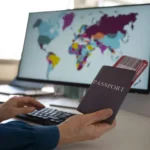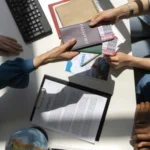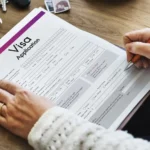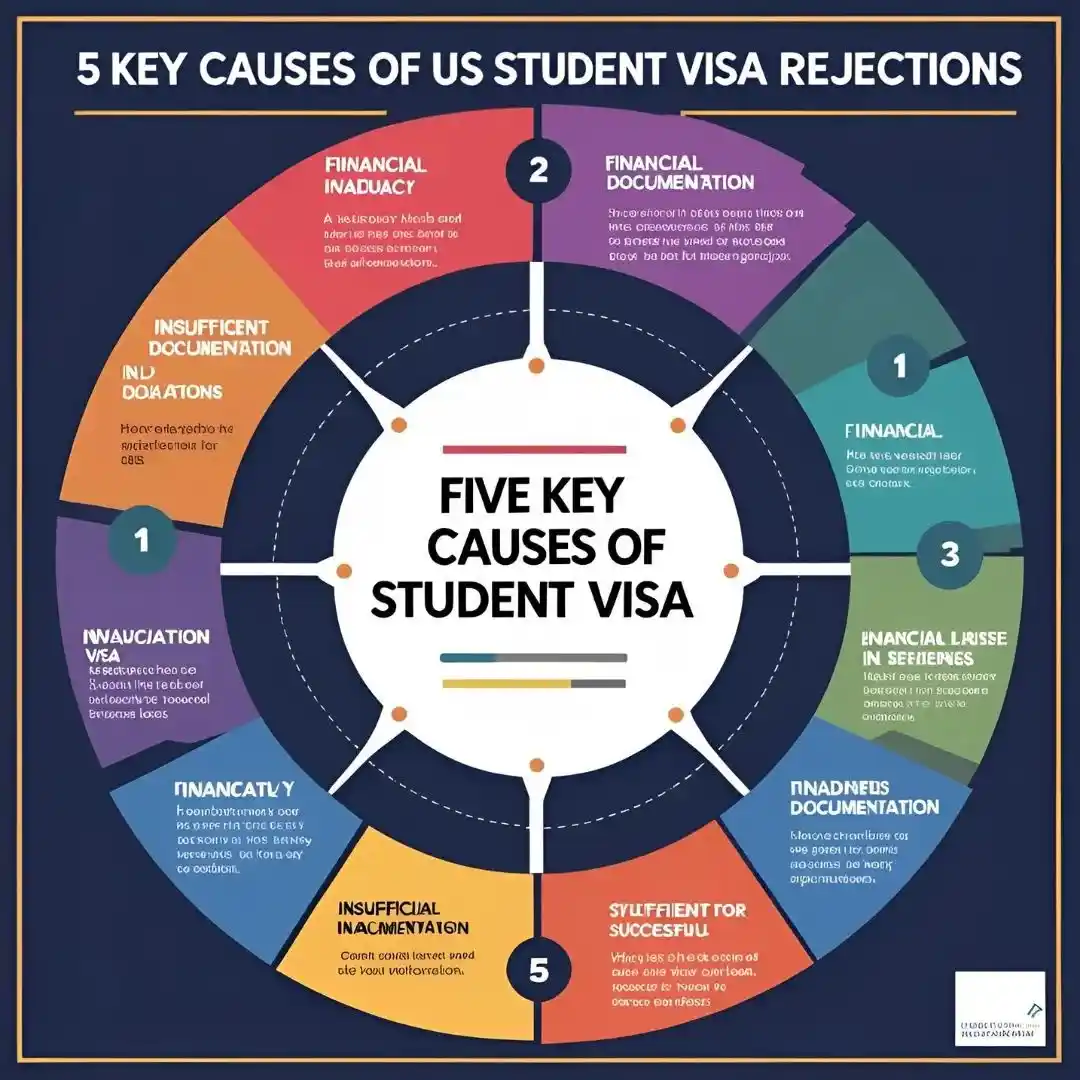Securing a US student visa (F-1) can be a game-changer for your academic and professional future. However, the path to approval isn’t always smooth. Many students face visa rejection due to avoidable errors during the visa interview process.
Firstly, this guide outlines five of the most common reasons why student visas are denied—and more importantly, how you can avoid these pitfalls and improve your chances of success.
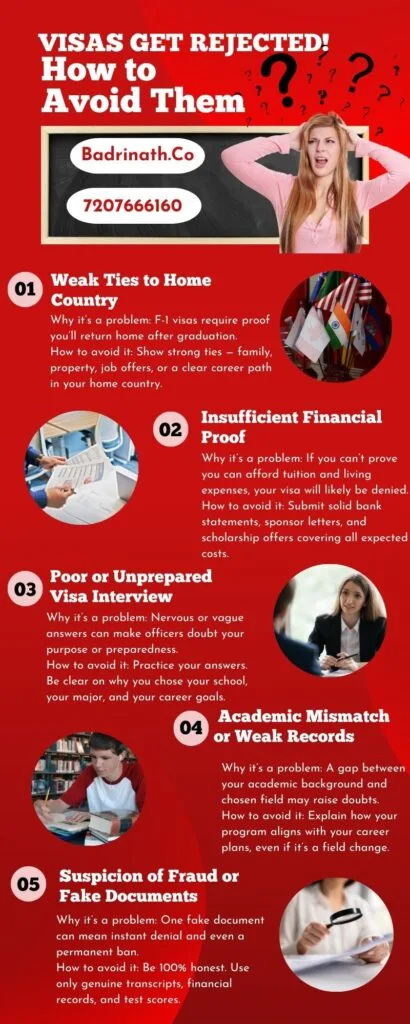
Understanding the F-1 Visa Process
The F-1 visa is designed for non-immigrant students who want to pursue education in the U.S. at accredited institutions. Subsequently, after receiving your Form I-20 from a SEVP-approved school, the next step is the visa interview at the U.S. embassy or consulate.
Indeed, this interview is not just a formality—it’s a serious evaluation of your credibility, financial stability, and intentions.
Common Reasons for US Student Visa Rejection
1. Lack of Strong Ties to Home Country
Why it matters: U.S. law requires student visa applicants to prove that they do not intend to immigrate permanently.
Consular officers, after all, want to be convinced that you’ll return home after your studies.
How to avoid it:
- Show strong family, financial, or social ties to your home country.
- Talk about future job opportunities or business plans back home and also.
- Avoid saying anything that hints at plans to settle in the U.S.
2. Inadequate Financial Proof
Why it matters: Obviously, the U.S. government wants to ensure you can support yourself financially without illegal employment.
If you can’t demonstrate the ability to pay for tuition and living expenses, your visa is likely to be denied.
How to avoid it:
- Specifically, provide clear, genuine bank statements, tax returns, and salary slips from your sponsor.
- Make sure funds are liquid and accessible, not just assets on paper.
- Don’t use borrowed funds from unknown sources—this raises suspicion.
3. Weak Academic Profile or Inconsistencies
Why it matters: Visa officers expect you to be a serious student. Poor grades or inconsistent academic history may raise doubts.
How to avoid it:
- Be honest about your grades and explain gaps or low scores confidently.
- Show your motivation for improvement and how the program aligns with your goals.
- Make sure your statements match those in your application and I-20.
4. Incomplete or False Documentation
Why it matters: Submitting incomplete, forged, or inconsistent documents is one of the fastest ways to get a visa rejection—and possibly a long-term ban.
How to avoid it:
- Double-check that all documents (academic, financial, personal) are complete, clear, and authentic.
- Never submit fake bank statements or altered documents.
- Be prepared to explain your documents during the interview.
5. Poor Communication Skills During the Interview
Why it matters: Even if your documents are in order, your interview performance is critical. Nervousness, lack of clarity, or poor English can negatively affect the outcome.
How to avoid it:
- Practice common questions and answers with a friend or mentor.
- Maintain eye contact and answer confidently.
- Brush up on basic English speaking skills if needed.
Bonus Tips to Improve Your Chances of Approval
- Arrive early for your interview to avoid stress.
- Dress appropriately—neat, clean, and semi-formal.
- Keep your answers short, clear, and to the point.
- Be respectful—address the officer formally, avoid arguing.
- Carry only required documents in an organized folder.
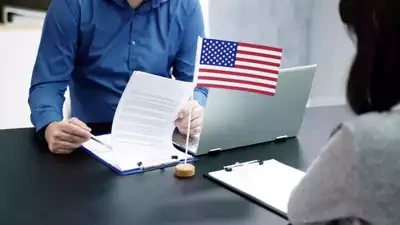
Conclusion
A US student visa rejection can feel like a dead end—but it doesn’t have to be. By understanding these five common mistakes and taking proactive steps to avoid them, you give yourself a much better chance of hearing those powerful words: “Your visa has been approved.”
Read More About the Topic
External Links
Five Key Causes of US Student Visa Rejections and Tips to Avoid Them
Top 15 US Student Visa Rejection Reasons
Internal Links
DS-160 Form Demystified: How to Fill it Correctly (With Screenshots)
How to Prove Financial Support for Your F-1 Visa Interview (With Examples)


